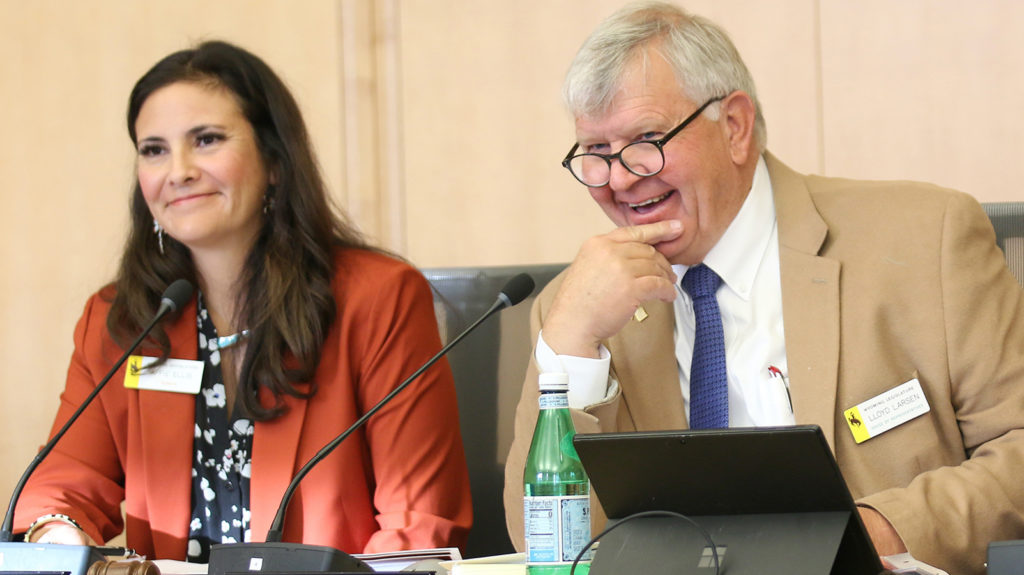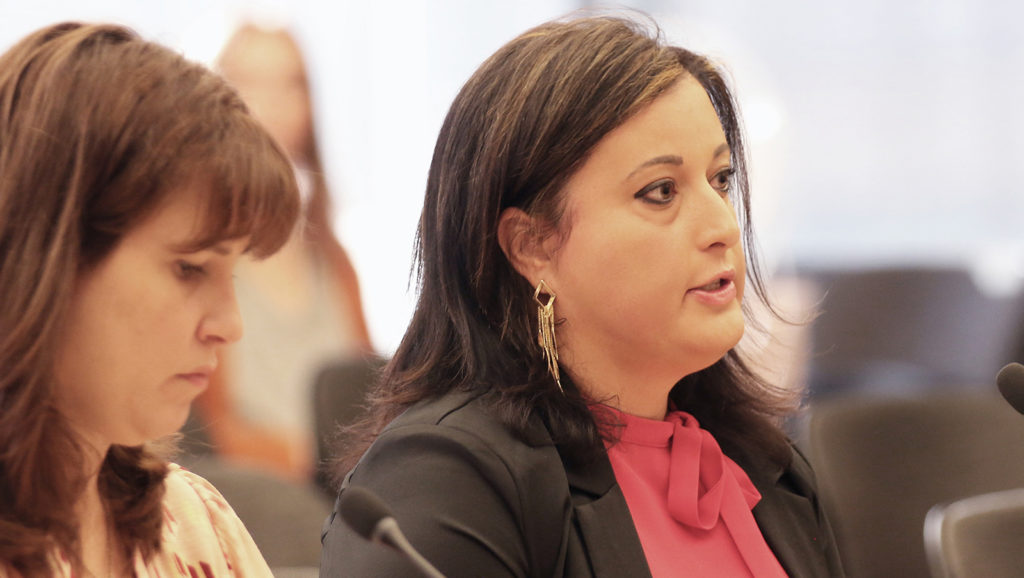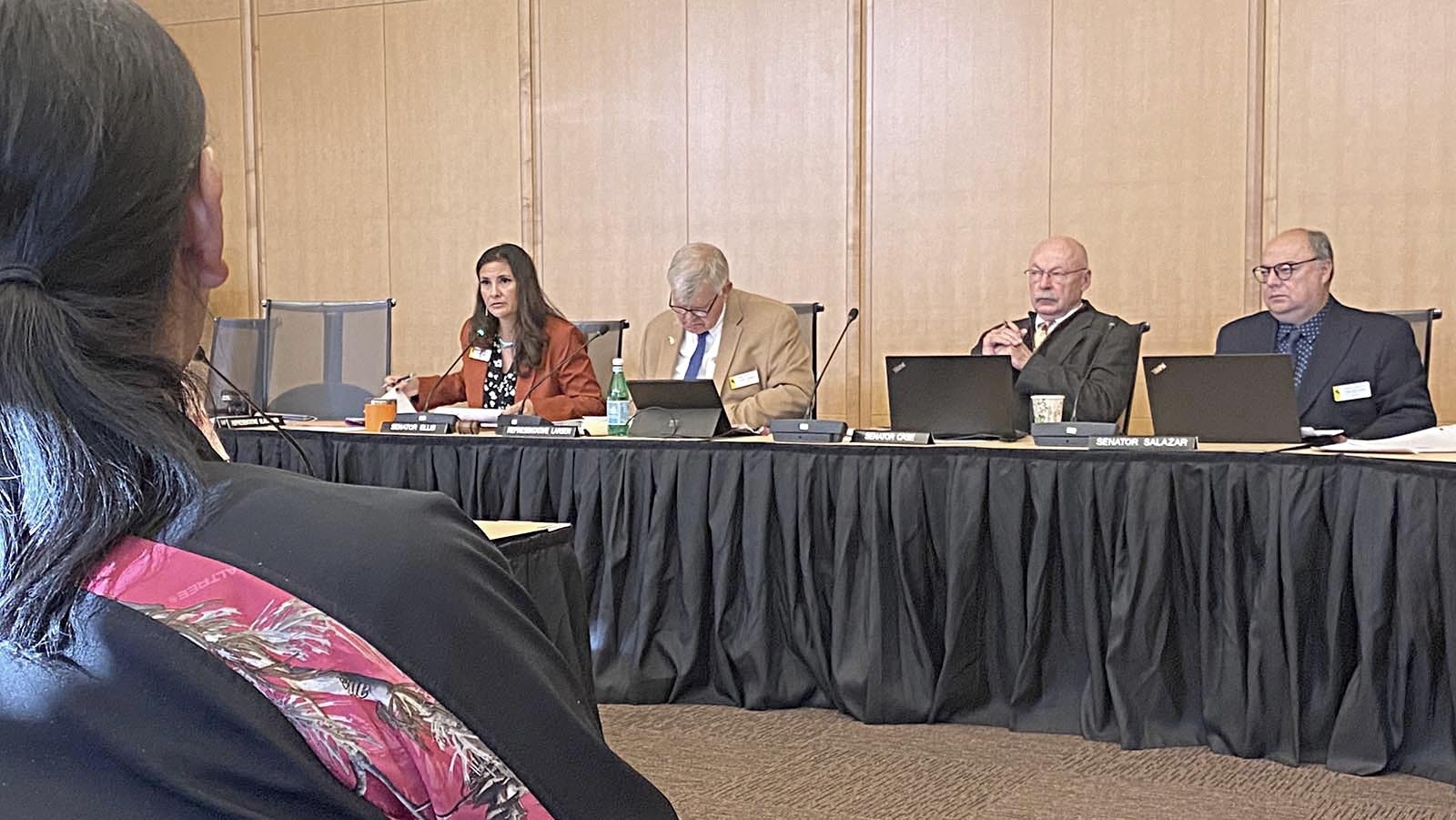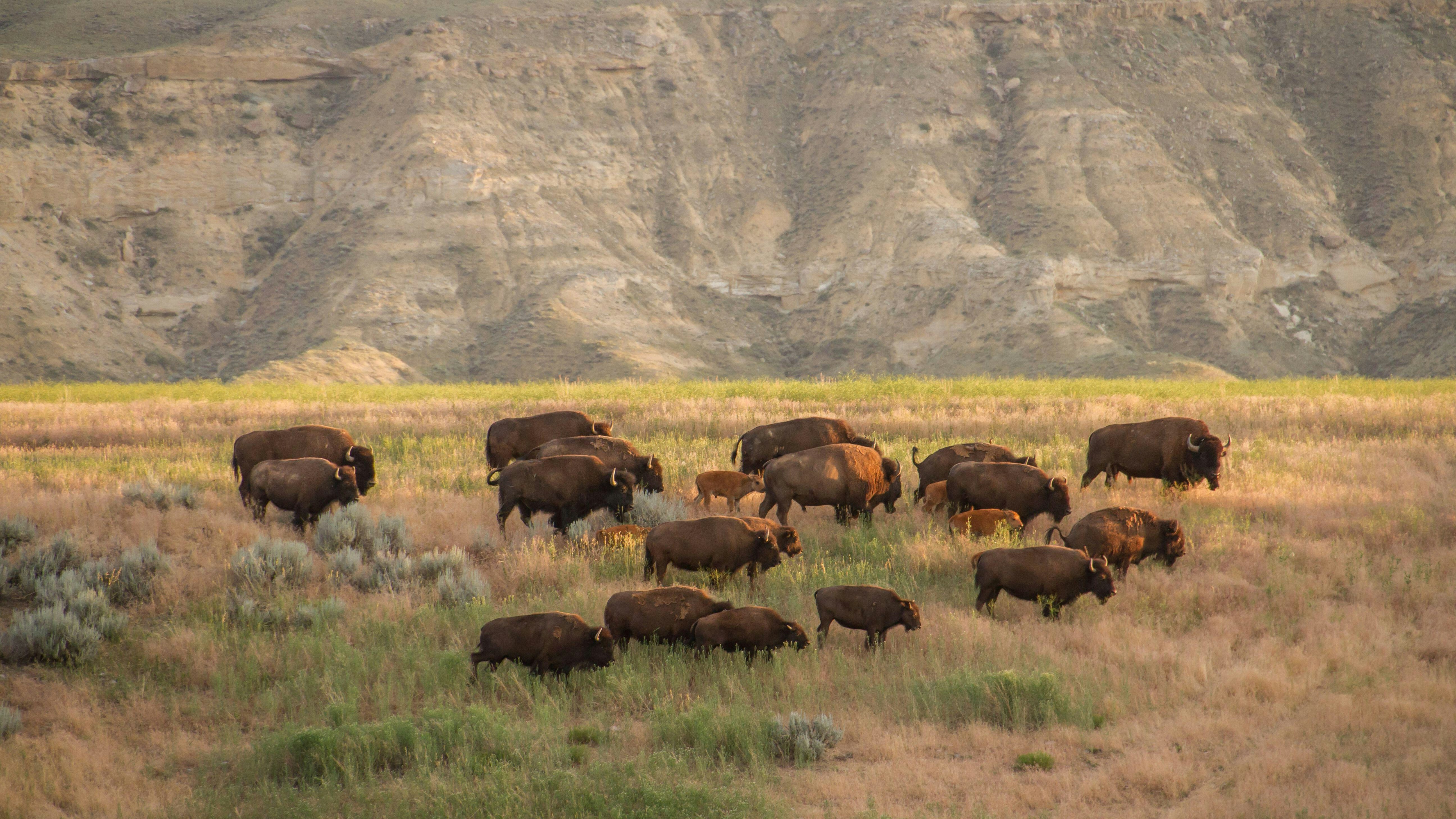Following federal accusations of sexual harassment and misconduct on campus, St. Stephen’s Indian School needs to prove it can educate kids to Wyoming’s standards to receive state funding.
Sen. Cale Case, R-Lander, announced during a Tuesday meeting of the Legislature’s Select Committee on Tribal Relations that he may be ready to quit funding the school.
The committee did not approve a funding agreement Tuesday, but committee co-chair Sen. Affie Ellis, R-Cheyenne, said she and other committee members would be “happy” to continue working on the issue and possibly develop an individual bill addressing it in time for the January lawmaking session.
Ellis said during an August meeting of the committee that the federal report on St. Stephen’s misconduct deeply troubled her.
Wyoming annually has given roughly $1.4 million to St. Stephen’s Indian School, a private, nonprofit organization that had its own school board before the federal Bureau of Indian Education took control of the school this year.
The state has funneled the money each year through the neighboring American Indian tribes, the Northern Arapaho and Eastern Shoshone.
But following revelations of alleged sexual impropriety toward students, nepotism, bullying and other misconduct by top administrators – including the school’s superintendent, Frank No Runner – Wyoming now is faced with drafting a new funding contract, this time with the federal Bureau of Indian Education as the ultimate recipient of the money.

Kicked In The Teeth
Case said he feels disillusioned by the scandal and isn’t sure if it’s wise for the state to continue funding the school now.
Case in 2007 was a key proponent of funding the school annually. He told officials from the Wyoming Department of Education on Tuesday that it seemed like a good idea at the time because the state could split its costs with the federal government, require students to be educated according to state standards and “there was a feeling that St. Stephen’s was doing some good work.”
“And now I just have to admit, what happened at St. Stephen’s, it just kicked my teeth out,” said Case. “And I don’t even think we know the whole story.”
He said he would like to look at different ways to support the school that wouldn’t contribute to a possibly abusive situation devoid of oversight.
Tribe Options
Mike Ute, a member of the Eastern Shoshone Business Council, said he has been on the St. Stephen’s interim school board since the two tribal governments fired the board’s elected members in May. He advocated for the state to continue funding the school, and said the tribes didn’t understand that they could exercise authority over the school until recently.
Whether the tribal governments had the authority to fire board members is unsettled. However, federal law does give the tribal governments the right to offer the school for retrocession, or federal takeover, which they did.
Ute said the retrocession process was “really confusing” because the tribal governments had just learned that they could exercise oversight over the school.
“But let’s just be honest. If the Bureau (of Indian Education) takes over a program, it’s going to be bare-bones funding,” he said. “It’s going to be catastrophic if we do not get any of the state funding for St. Stephen’s.”


Wyoming Standards
Rep. Lloyd Larsen, R-Lander, emphasized that if funding of the now-federal school is to continue, Wyoming needs to ensure students are being educated to Wyoming standards so they can transfer seamlessly to other Wyoming schools or to colleges after high school.
“Will those kids be getting a Wyoming education? Are they going to be taught by teachers that are licensed to teach in Wyoming?” he asked, adding that “there’s a reason we require that.”
Rob Black, Native American liaison for the Wyoming Department of Education, said he agreed those stipulations should be in place, and the department is open to adding them.
The committee earlier in the meeting discussed recruitment, retention and success of American Indian students at both the University of Wyoming and Central Wyoming College, which is near the Wind River Indian Reservation.
Ellis told Black to investigate contract components that could help St. Stephen’s students be just as eligible to receive the Hathaway Scholarship as their state-educated counterparts. She emphasized diligence making all components of the new funding contract, saying the state needs more oversight to “avoid a situation like that from ever happening again. It’s just not OK.”
Eight School Districts
Larsen also hinted that other schools with more state oversight may be able to educate those same children. Fremont County has eight school districts not including St. Stephen’s, three of which are on the reservation and one of which nearly abuts it. No other Wyoming county has more than four school districts.
“It’s not like there aren’t other educational resources in the areas – would you agree with that?” asked Larsen.
Black acknowledged that there are “a number of school districts and school facilities nearby.”

Oversight
Sergio Maldonado, Democratic candidate for state schools superintendent, told the committee that the problems need to be addressed at home and in the community.
Maldonado also is a Northern Arapaho Tribal member and served as a school board member for St. Stephen’s years ago, he said. Even then, he had concerns.
“And I remember as if it was yesterday the many times when we questioned what was happening with the superintendent and the suits,” said Maldonado.
He said there were times when he was hesitant to sign off on school diplomas because of low academic performance among students.
And now, said Maldonado, some of the students who went to St. Stephen’s in recent years are “not meeting the state requirements… needed to matriculate on into life and society. When students come out of a high school and they are basically functionally illiterate – I am saddened.”
Maldonado said those students are his relatives and are tribal people and deserve better. He said the state must gain oversight over the school or it will be politically isolated.
“And if we’re going to use taxpayer dollars to bail them out of the scenario that they created, the people let them create, then, you know, I’m speechless. We cannot let this go on,” he said.
Maldonado said he supported the tribal governments’ retrocession of the school but hopes for more community awareness and public accountability from the school in the future.

Teacher Shortage
Now under federal control, St. Stephen’s is having trouble recruiting teachers, as the federal hiring process is more cumbersome and the nation is experiencing a teacher shortage, said Chad Auer, deputy superintendent of the Wyoming Department of Education.
Auer said the Bureau of Indian Education is shuffling some of its own teachers from other areas into the staff to ease the shortage. He said he didn’t know whether the bureau’s teachers are licensed to teach in Wyoming.
The Candidates
Rep. Andi LeBeau, D-Ethete, whose district covers the reservation, did not attend the meeting Tuesday. She said during a debate Sunday against her legislative campaign opponent Sarah Penn, that she would vote to continue funding St. Stephen’s. Penn, who is a Republican, said she also would vote to continue funding the school if elected. The women face off in the Nov. 8 general election.





